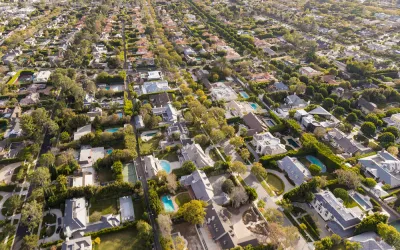Los Angeles is the latest city to adopt a "linkage fee" that charges new development to generate funding for affordable housing, joining cities like Seattle, Chicago, and San Jose.

"The Los Angeles City Council voted Wednesday to impose a new fee on development to raise millions of dollars a year for affordable housing as the city copes with rising rents and surging homelessness," reports Dakota Smith.
"Under the measure, builders will pay $1 to $15 a square foot, depending on the type of project and area, with higher fees in 'high-market' neighborhoods, including the Westside, and lower fees in areas that include San Pedro and South L.A.," according to Smith. Policy makers hope the new fee will generate $100 million every year after it goes into affect in 2019. More detail on how the fee works is included in the article.
The proposed "linkage fee" has been a subject of political debate for several years in Los Angeles, but the vote now comes as a victory for Mayor Eric Garcetti. The mayor has advocated for the linkage fee as a new permanent source of revenue for affordable housing projects.
Mayor Garcetti's comments after the approval of the new linkage fee seems to play two sides of the development politics debate: those in favor of growth and those concerned about gentrification as a result of new development. "Today we see hope in the promise that Los Angeles can continue to grow and indeed must grow….That when we see luxury condominiums going up, that we can make sure that there is money paid in to build housing for the rest of us," said Mayor Garcetti, as quoted in the article.
The new fee is unpopular with developers in the city, who say the new expense will most likely be passed down to renters. Others have argued that more fees are likely to slow or halt development altogether, making the fee ineffective for its own purposes.
FULL STORY: L.A. City Council approves development fee to raise money for affordable housing

National Parks Layoffs Will Cause Communities to Lose Billions
Thousands of essential park workers were laid off this week, just before the busy spring break season.

Retro-silient?: America’s First “Eco-burb,” The Woodlands Turns 50
A master-planned community north of Houston offers lessons on green infrastructure and resilient design, but falls short of its founder’s lofty affordability and walkability goals.

Delivering for America Plan Will Downgrade Mail Service in at Least 49.5 Percent of Zip Codes
Republican and Democrat lawmakers criticize the plan for its disproportionate negative impact on rural communities.

Test News Post 1
This is a summary

Test News Headline 46
Test for the image on the front page.

Balancing Bombs and Butterflies: How the National Guard Protects a Rare Species
The National Guard at Fort Indiantown Gap uses GIS technology and land management strategies to balance military training with conservation efforts, ensuring the survival of the rare eastern regal fritillary butterfly.
Urban Design for Planners 1: Software Tools
This six-course series explores essential urban design concepts using open source software and equips planners with the tools they need to participate fully in the urban design process.
Planning for Universal Design
Learn the tools for implementing Universal Design in planning regulations.
EMC Planning Group, Inc.
Planetizen
Planetizen
Mpact (formerly Rail~Volution)
Great Falls Development Authority, Inc.
HUDs Office of Policy Development and Research
NYU Wagner Graduate School of Public Service




























